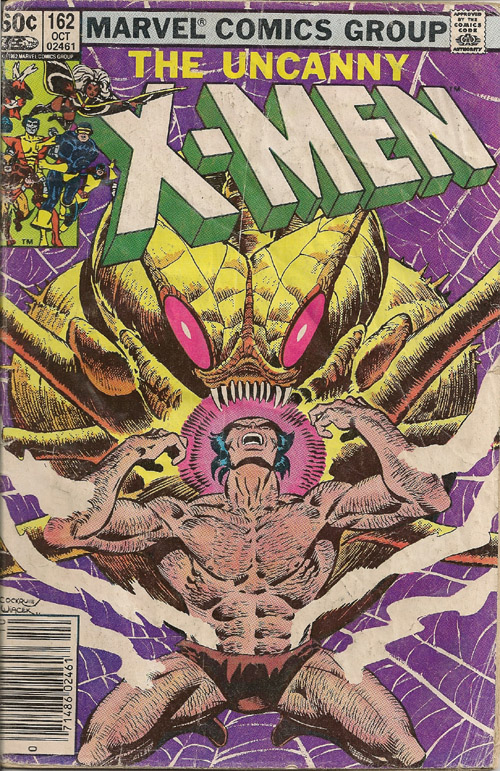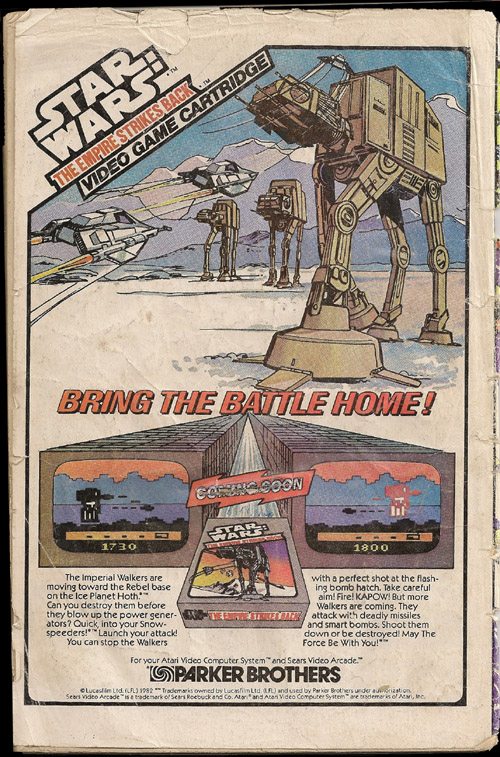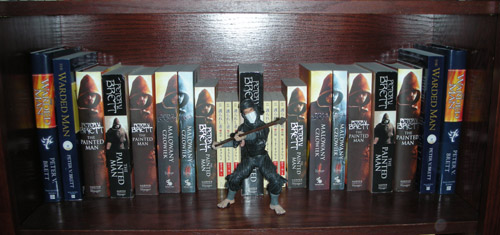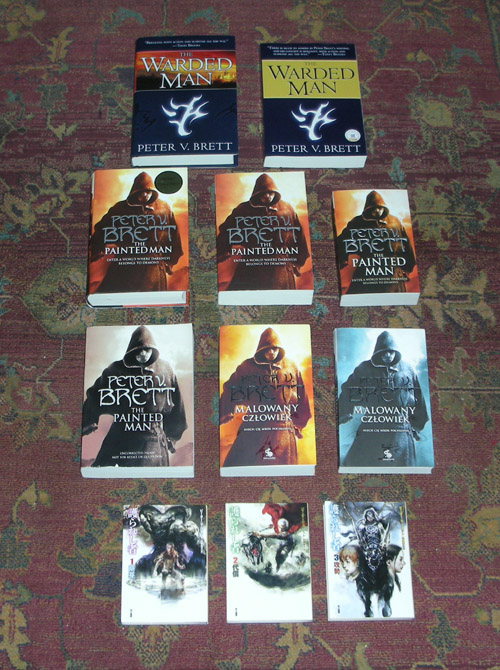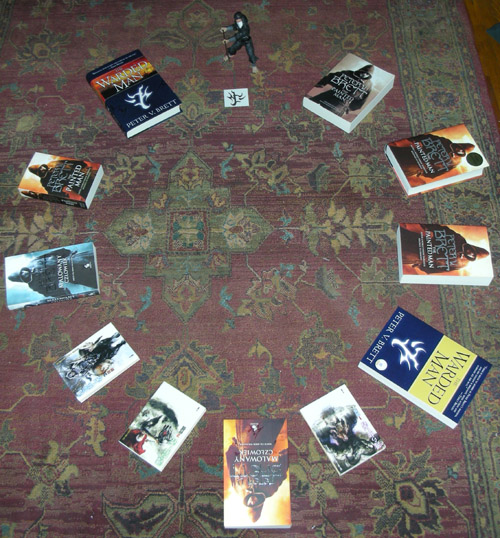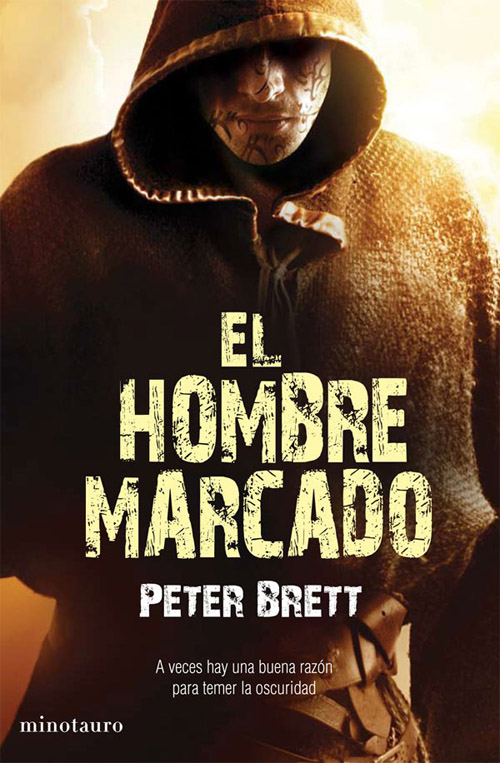Fear is a major theme in The Warded Man. In the story, the entire human race is crippled by blind fear and by it kept from their full potential.
I write about fear because it’s something I deal with every day, and I bet a lot of other folks do, too. So I am going to do a series of blog posts about things that scare me. This first post is about seeing puppet strings.
Up until a few years ago, I was very lazy about writing. I had short bursts of creativity, followed by long months with no creative output at all. Instead I just absorbed, reading books and comics voraciously, going to the movies regularly, and watching a lot of SF TV.
I loved that input time. I was an empty sponge, waiting to soak up all the creative juice I could as I wondered if I had what it took to be creative professionally.
But I was scared. Scared of the time and social commitment. Scared my writing would be crap, that everyone would scoff at my creation and make fun of it. I am a fairly picky reader, and the thought of having my work judged by thousands of jerks like me was terrifying.
I took heart, though, in a fairly short list of authors who made me want to get off the bench, not because I thought I could do better than them, but because they inspired me to try and achieve their level of craft no matter how long it took. These were writers like CS Friedman, Terry Brooks, George RR Martin, RA Salvatore, Robert Jordan, Phillip Pullman, and David Farland.
Once I was committed to making a go at writing, one of the things I did to help me on the path to pay attention to interviews with these and other authors, learning their writing philosophies and craft tricks. CS Friedman had links to some web interviews on her site. Studied ‘em. Terry Brooks wrote a book on writing. Bought it. Salvatore and Jordan spoke on panels at San Diego ComicCon. I was so there. I heard George RR Martin had a hand in writing the Turkey City Lexicon, and I headed to the SFWA site to check it out.
Turkey City was a real eye-opener. Suddenly I had names for all the storytelling tropes that may or may not have been subconsciously bothering me. I could tell a I’ve Suffered for My Art (and So Should You) from a Jar of Tang. This vocabulary makes it much easier to dissect a SF story into its component parts. If you want to be a SF writer, I recommend you read it.
But there’s a price.
The Lexicon is very condescending, even dickish at times. It will instill in you an innate disgust for most storytelling tropes. Things that probably never bothered you before, if you even noticed them at all. Things that are sometimes absolutely acceptable and necessary to get an author from point A to point C if point B stands for Boring.
Familiarity breeds contempt, as they say.
Now when I read new books, I have a much harder time falling into the story and enjoying them. My internal editor, once switched on, cannot be easily turned off. I see the puppet strings of the author, and it throws me out of the story as I start noting the Said Bookisms and the As You Know, Bobs. I find myself shouting things like, “You’re frontloading a fifty page infodump as a tell right at the start of the book! Are you Mad?”
I am very critical of new writers about this, but when I see it from one of my pseudo-mentors, it’s worse. I feel disappointed. They’re my heroes. Masters of the craft. They should know better.
At first I tell myself they are losing their touch. There’s no shame in it. Most artists have a creative career arc that dips in the end. It’s cool. No one tells Metallica not to tour, even though they haven’t made a decent album since 1991. Those guys were the best once. Hell, I went to see them in January, smiling and nodding my head politely in time to the new stuff, and rocking out to the old.
So maybe that’s it, but maybe not. Plenty of writers stay sharp right on to the end. What if it’s something else? I’ve been known to infodump myself on occasion. When you’ve gotta, you’ve gotta. Sometimes a quick tell that saves you 30 pages of unnecessary show is worth it. I wonder if maybe I’ve become so concerned with unlocking the secrets of the AUTHORS that I’ve lost my ability to connect with the CHARACTERS.
And then I look at the older books written by my heroes in their primes, those pristine, flawless bibles of writing that inspired me to get off the bench. I look at them, and my blood runs cold as I wonder.
Would they be just as good as I remember if I read them now?
What if I tried to go back and visit my old friends, Jair Ohmsford and Gerald Tarrant, Jon Snow and Perrin Aybara, Drizzt Do’Urden, Will Parry and Myrrima Borenson, only to find them dangling limply from puppet strings? What if I’ve seen the hidden 3-D image, and now I can’t ever unsee it? What if my heroes become just fallible human beings, and I am unable to empathize with Arya Stark in A Dance With Dragons because her section is written as a tell, or if A Princess of Landover contains infodumps and frontloading that keep me from connecting with Mistaya Holiday? What if, in trying to make magic, I can never see another magic show without suspending wonder in order to figure out how the trick was done? What if I’ve just becoming a cynical old man at 36?
That thought scares the crap out of me.
Posted on April 17, 2009 at 11:45 am by PeatB
Filed under Craft, Musings, Writing
8 Comments »

